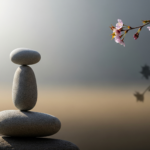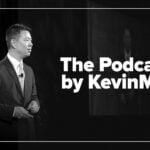Keeping my head down and working through intern year was all I had known. My days blurred into nights, and my weeks into months. The dreary Pacific Northwest winters had only compounded this. Despite a quiet yearning for connection and community, I declined most social invitations. My sense of obligation did not end at the hospital doors. It followed me home, where expectations and emotional responsibilities lingered. I often felt like an outsider among my colleagues, watching friendships blossom while I carried an invisible weight around the hospital day to day. While I spent 60-80 hours each week in the hospital, the pressure to show up just as fully at home became overwhelming.
But something shifted near the end of that grueling year. After a relentless six-night stretch, I planned to move my things into my own apartment in the city. I canvassed Facebook Marketplace for secondhand furniture items in an attempt to furnish my new studio apartment, all after having worked throughout the night prior. Though seemingly small and necessary at the time, this act marked a seismic change. For the first time in many years, I reclaimed my life. I not only took back my time and space, but slowly, my sense of self. I rediscovered joy (not just in life, but in medicine). I stopped attempting to perform in my engagements and allowed myself the grace to simply exist.
Through building a new life that was quieter, simpler, and grounded in psychological safety, I discovered additional clarity. I learned the impact of allowing myself compassion and, in turn, became more attuned to the experiences of others. As a result, I developed a deeper sense of empathy for not only patients I met, but for my colleagues and, finally, myself. In doing so, I learned that I was not the only one battling with conveying the complexity of residency to a partner not in medicine.
This was the moment I knew I could not continue living a divided life all the while trying to be everything to everyone in every environment and circumstance. It was also the moment I understood that choosing to end my marriage during training was not to be considered a failure, nor was it a reflection of my character. All I had known for many years was performing for evaluations and working towards the next milestone. I was not choosing one thing over another, but choosing myself, my happiness, and my well-being. Doing so was an act of alignment and a courageous decision to live truthfully, even when it meant doing one of the hardest things for any person: letting go.
Getting divorced during training is not something we talk about openly. In some ways, I am not sure exactly why that is the case. But for me, it became a turning point: not just of collapse, but of clarity in a multitude of facets of my life. It was the moment I knew I had stopped just surviving, but started living both as a person and as a physician.
Emma Fenske is an internal medicine physician.




















![Stopping medication requires as much skill as starting it [PODCAST]](https://kevinmd.com/wp-content/uploads/The-Podcast-by-KevinMD-WideScreen-3000-px-4-190x100.jpg)
![Weaponizing food allergies in entertainment endangers lives [PODCAST]](https://kevinmd.com/wp-content/uploads/The-Podcast-by-KevinMD-WideScreen-3000-px-3-190x100.jpg)


![AI censorship threatens the lifeline of caregiver support [PODCAST]](https://kevinmd.com/wp-content/uploads/Design-2-190x100.jpg)
